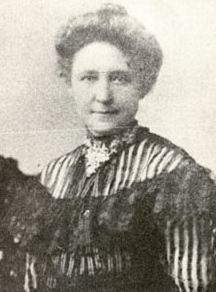Part 1: I’m sorry, Mrs. Keller
I’ve always thought Annie Sullivan was the bomb.
For those unfamiliar with the name, Sullivan was a 19th century educator who taught a blind and deaf child how to communicate with the outside world, paving the way for the latter’s life as a speaker, writer, activist and all-around badass.
The child was, of course, Helen Keller.
While both Sullivan and Keller have been lauded for their achievements, there’s someone else who deserves credit for Helen’s greatness.
That person is, of course, her mother.
Don’t worry, this isn’t some saccharine tribute to a complete stranger simply for giving birth. Rather, it’s an overdue and sincere apology to a person who deserves more credit than she’s been given. At least by me.
Some background
I have been borderline obsessed with Helen Keller since childhood. What can I say? She’s one hell of an icon.
And while long ago I placed Helen and her teacher on pedestals, I dismissed her mother as sweet but useless. This was mainly because I was a judgmental a-hole before I had children, with an unmatched ability to dismiss people I’d never met and experiences I’d never had.
In my defense, most of the books written about Helen Keller mention her mother only incidentally, focusing instead on her relationship with Sullivan.
The most in-depth portrayal of Kate Keller comes from the 1959 play The Miracle Worker, which chronicled — what else? — the early days of Helen’s relationship with Sullivan.
In the ultimate good-cop/bad-cop set up, the play portrays Kate Keller as kind but weak willed and dangerously indulgent of her child. This is in stark contrast to Annie Sullivan, a fiery yankee with a no-nonsense attitude who swoops in to instill order in the Keller household.
There’s no reason to believe these characterizations are far off the mark. Kate was the mistress of a genteel Southern household. Sullivan was the child of Irish immigrants and spent a large part of her life in a asylum for the poor.
What the play makes clear early on is that to thrive, Helen needs less of her mother’s kindness and more of Sullivan’s tough love.
A child lost
Although a work of fiction, The Miracle Worker is considered, for the most part, an accurate depiction of what occurred when Sullivan moved in with the Kellers to teach their daughter.
When it opens, 6-year-old Helen is depicted as near feral. Without the ability to understand what’s going on around her, she has been left in a protracted state of infancy. She is filthy and disheveled. One can presume — if one is me, anyway — that she is in diapers.
In the first few minutes, she attacks another child with a pair of scissors. A few minutes later, she tips her baby sister out of her cradle.
There is yelling and crying, and like the setup in a bad reality show, the Kellers are depicted as a Family in Crisis.
The audience learns that Helen’s parents have been advised to put their daughter in an asylum for the mentally ill. So far they have resisted but unless they can get Helen under control, they may have no choice.
Sullivan quickly identifies, of all things, Kate as the greatest obstacle to Helen’s success. Kate refuses to discipline or train her child. She dispenses hugs and cuddles instead of punishments and allows her daughter to run wild, stepping in only if the child has hurt someone or could hurt herself.
When Sullivan attempts to instill some discipline in the child, Kate frets that she is being too harsh.
Sullivan decides the only chance she has of getting through to Helen will be if her mother is out of the picture.
She’s right. It’s only after Sullivan moves into a small house with Helen and works with her one-on-one that she is able to teach the child the concept of language, thus changing her life forever.
What a kick to the maternal nuts.
What Kate did for Helen
While there is no denying that Sullivan changed Helen’s life for the better, I believe Kate’s contribution was as great, if not infinitely more subtle.
Helen Keller is inspirational not only for finding her voice despite physical setbacks but because that voice was so remarkable.
Her writing and speeches — which are still quoted today — show a soul filled with wisdom, joy and compassion. This is astounding when you consider she spent the first six years of her life in what was practically solitary confinement.
Until she learned how to communicate, Helen largely knew only silence and isolation. She had no way to express her feelings or even understand them.
She was also aware of the fact that she was different. In her early years she would feel people’s faces while they were talking and move her own mouth in imitation. She knew she was missing a piece of the puzzle. She also had to sense that few people wanted to be near her. Even her father and older brother gave her a wide berth.
But because of Kate, she also knew affection and comfort. Her mother’s kindness and total acceptance taught Helen that, as different as she was, she was still worthy of love. It’s difficult to imagine who she would have become without that knowledge.
Kate also showed a heroic amount of empathy and patience. While most people dismissed Helen as wild or even insane, Kate looked beyond her behavior and tried to understand what was going on in her child’s head. She knew Helen didn’t act out because she was a mean child. She was frustrated. She was lonely. She wanted desperately to fit in but she didn’t know how.
Kate Keller did more than just defend and mediate for her daughter. She kept her tethered to humanity.
That’s some hardcore parenting right there.
Could she have done this and still instilled some discipline in the child? I guess. Hell, she could have been a real super hero and devised a system of communication for the child as well but she didn’t.
All I can say is, from one mother to another: Kate Keller, I get it now. I’m sorry I didn’t get it sooner.
You rock.

